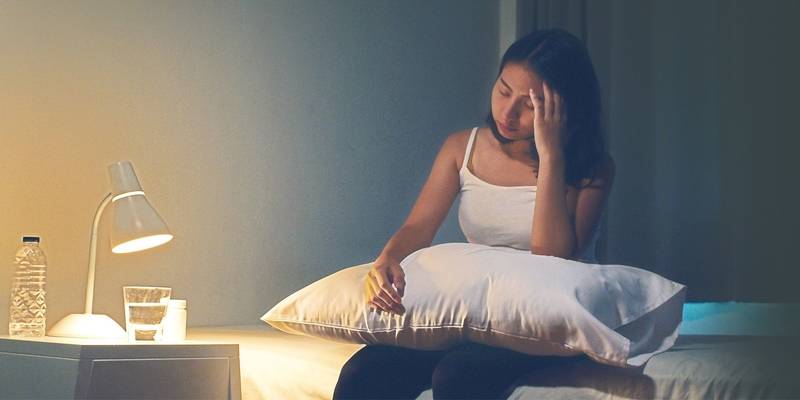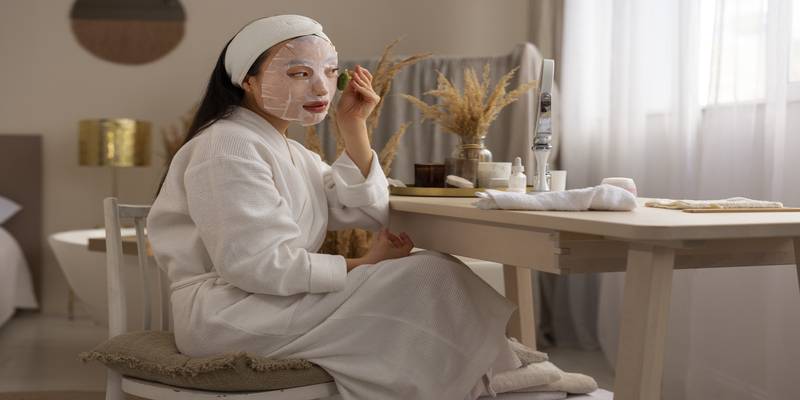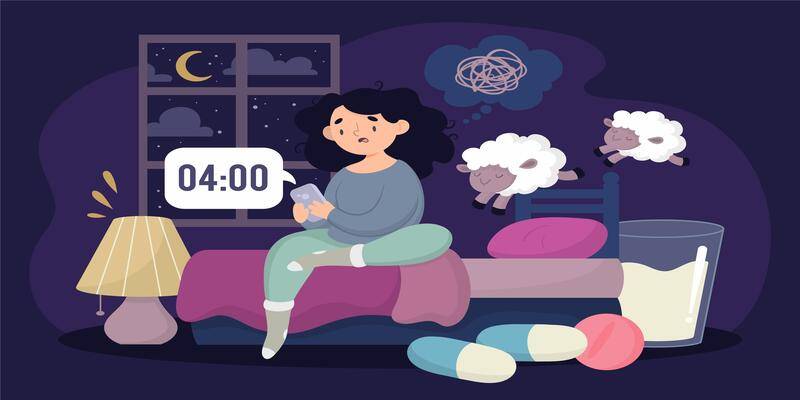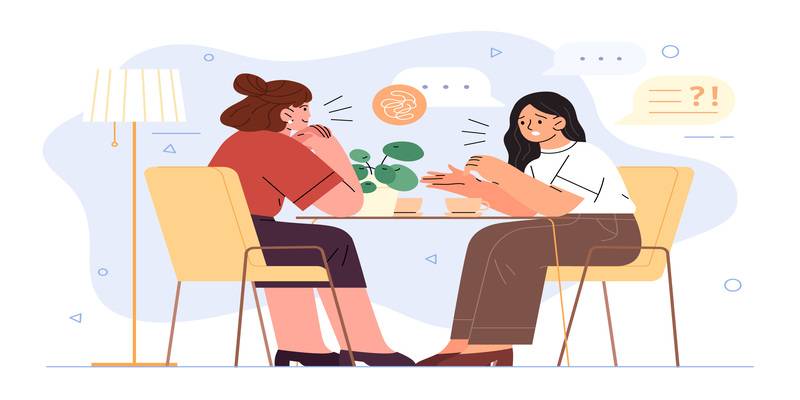COVID-Somnia’s impact on sleep patterns and how to deal with it

Do you have trouble sleeping? Do you end up staying awake through the night or wake up early and can’t go back to sleep? Then you ought to be familiar with the term ‘insomnia’. Broadly defined, it is a sleeping disorder in which individuals have trouble falling or staying asleep. This can be chronic or acute and can impact an individual’s life to a great extent. The ongoing pandemic has impacted the sleep cycle of millions of people across the globe due to the unprecedented changes that individuals and families have collectively experienced. So much so, that its impact has now even stretched to remote corners of the world, giving this phenomenon a new lingo — COVID-Somnia.
So, how did this sudden surge that led to the introduction of COVID-Somnia came into existence? The COVID-19 pandemic ushered the world into uncharted waters with economies collapsing, lack of proper medical infrastructure resulting in deaths across the world, and being confined, not just mentally but physically, because of the lockdowns. These, in turn, have resulted in stressful and uncertain times where our mind is never at ease. A recent study conducted in the United Kingdom by the University of Southampton revealed that a rise in insomnia was experienced by one in four individuals as compared to one in six individuals earlier. In China, it grew from 14.6% to 20% during peak lockdown. Researchers also shared that the term “insomnia” was searched more than ever in 2020.
With the pandemic reaching out to its second year, social distancing and lockdowns have shaken the building blocks of our daily lives by erasing what was known as normal to us. We need constant mental stimulation and social connection. We are bound by the need to have a hectic work and social calendar in our daily lives. However, the lockdown and COVID-19 restrictions have made it difficult for us to connect and interact with other people in person and go about our daily activities with a meaningful end goal in sight. This has further contributed to people losing sleep and/or having an erratic sleeping schedule.
The importance of sleep is flying under the radar despite it being immensely critical to the physical, mental, and emotional well-being as well as the functioning of our immune systems. It is a commonly known fact that lack of sleep can lead to anxiety, stress, lesser productivity, and depression. Since the beginning of the lockdowns, ‘#cantsleep’ has been trending on Twitter globally as increased stress and anxiety are posing as significant barriers to sleep. Chronic insomnia and reduced hours of sleep can impact health and cause cardiovascular diseases, obesity, and diabetes, among other ailments. Not only that, an individual’s mood and concentration is also affected severely by the lack of sleep. However, there is some good news at the end of this dark tunnel. During the pandemic, researchers discovered new methods and have reinforced previous methods to help ease an individual’s suffering from COVID Somnia. Here are some pointers to ponder upon to help you with it.
Screen time before bed
Our body releases a chemical known as melatonin late in the evening, which allows us to fall asleep naturally. However, the blue light exposure from cell phones, computers, and iPads stimulates our brain and prevents this release, thus signalling our body to stay awake. Most of us have a habit of using our phones in bed till we fall asleep. However, for some, it can lead to insomnia and consequently mess with the chemical balance in their body.
Get some sunlight
Lockdown has been depressing for most of us. Studies show that those stuck alone or confined within their homes have an increased dependency on electronics. Being indoors for a prolonged period interferes with our body’s circadian rhythm, which is the natural process that helps regulate our sleep wake cycle. The sun’s rays and natural lighting’s exposure is essential to calibrate our biological clock. With the constant use of electronics, our energy levels, sleep schedule, and appetite can be disrupted, making our bodies unable to detect the time of the day and hence not releasing the appropriate chemicals. So, regardless of whether you are in a lockdown or are avoiding going out due to the surge in cases, you should open your curtains to let natural lighting into the house in the morning or go for a walk to allow your body to calibrate its circadian rhythm.
Don’t fall asleep immediately after eating
There has been a surge in late-night binge-eating since the start of the pandemic. We all are guilty of this at some point or the other. To have a good night’s rest, our body wants to shut off all the metabolic processes going on, which includes digestion. If you eat right before sleeping, you prevent your body from digesting the food, which can not only lead to eating disorders but may also make getting optimum sleep that much tougher for you. It is recommended to have dinner at least three-four hours before going to bed. By doing so, your body will be in sync and you’ll be able to digest the food as well as clock sufficient hours of sleep.
Get out of bed
Not being able to sleep can indeed be very frustrating. Researchers have discovered that staying in bed during an insomnia attack can make it even harder to fall asleep as with time your frustration grows and ultimately forces your brain to stay active. Instead of facing this constant cycle of agony, you should get out of the bed and keep the lights low to prevent your mind from getting fully active. Move around a little and try to calm your mind as that helps in easing the nerves.
Hopefully, these simple tricks will bring an end to your sleep deprivation.
Article by: Masheeza Faheem






